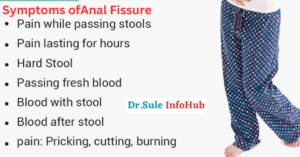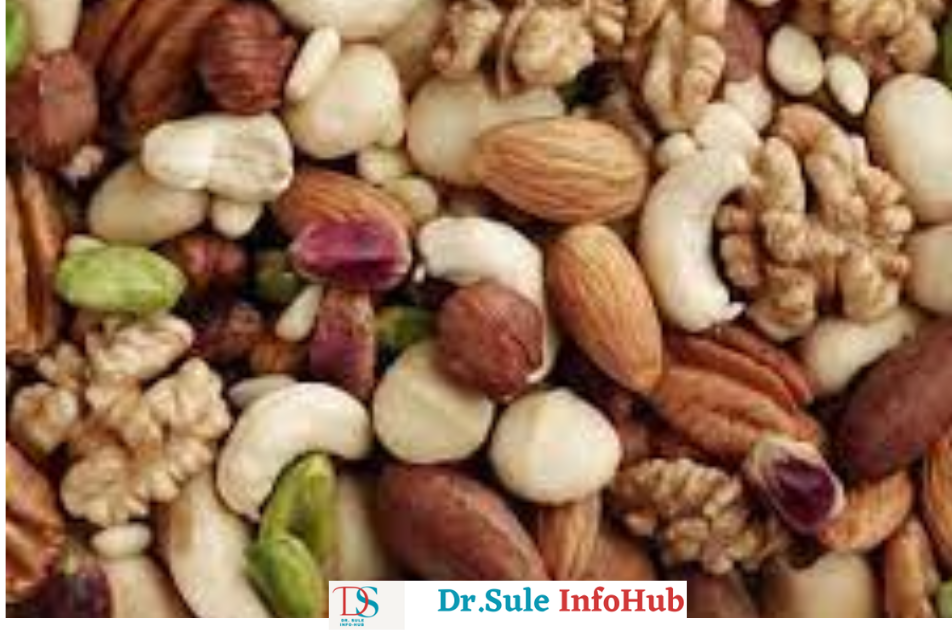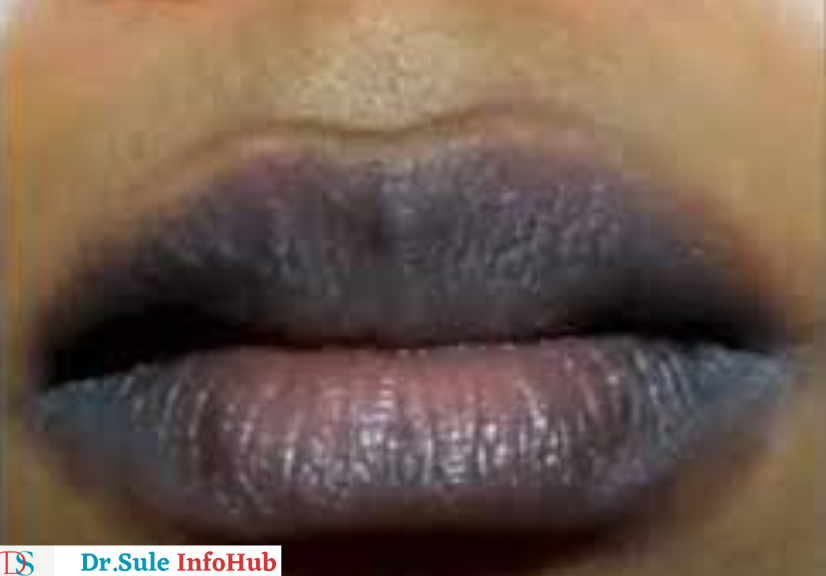Hello, DrsuleInfoHub family members, Today we will discuss one delicate subject. Many ladies suffered from itching, irritation, and burning in the anus. They can’t share their problem with family members. So friends, today we will see what anal fissure is and home remedies for anal fissure. We will see one delicate subject in easy language.

What is an anal fissure?
While a defecating person passes, a hard stool or large stool cracks, and a small tear forms in the anus. The person feels a stinging, burning pain in the anus. Anal fissures are tiny cracks and tears in the anus. Assume you have a small piece of paper cut on your finger. Anal fissures are a little bit similar to this. An anal fissure is also the result of chronic diarrhoea and inflammation in the anal region.
Causes and risk factors of anal fissure
We saw how important to be aware of anal fissures. Now we will see its causes and risk factors, which may lead to painful tears and cracks in the anus.
1) Chronic constipation is one of the important risk factors that lead to fissures. When a person gives regular strain during defecation, it puts immense pressure on the anal canal. Pressure may lead to cracks and small tears in the delicate linings of the anus.
2. Diarrhea
Frequent and watery stools can irritate and damage the sensitive skin around the anus. This repeated irritation can lead to the formation of fissures over time.
3. Childbirth trauma
During delivery, there may be injury occur to the perineum. Read Also:11 Essential Newborn Care Tips- For Easy Parenthood
4. Anal Sex
Some people may feel embarrassed to discuss this topic. Excessive force without proper lubrication during anal sex can cause microtears in the anal lining, which are essentially anal fissures.
5. Inflammatory Bowel Disease (IBD)
Inflammation of the bowel and ulceration can weaken the linings of the anus, making it more prone to tears and cracks.
6. Excessive wiping
Believe it or not, even something as routine as wiping too vigorously after using the toilet can contribute to anal fissures. The friction from abrasive toilet paper can cause minor trauma to the area over time.
7. Age and Genetics
Some people may be more genetically predisposed to developing anal fissures. This can make older individuals more prone to anal fissures.
8. Diet
A diet lacking in fibre can lead to hard, dry stools, which, as we mentioned earlier, can put a strain on the anal canal during bowel movements. Ensuring your diet includes enough fibre can help maintain regular and softer stools, reducing the risk of fissures.
9. Obesity
Being overweight or obese can also increase the likelihood of developing anal fissures. The excess weight can place additional pressure on the anal area, making it more susceptible to tears and cracks.
Symptoms and Signs of Anal Fissures
We saw the causes and risk factors of anal fissures; now we see the most critical aspect of this condition: the symptoms and signs.
1. Pain and discomfort
Pain is the hallmark symptom of anal fissures. During bowel movements, the person feels burning, pricking, stabbing, and sharp pain. This pain may be quite intense and is a very uncomfortable experience that affects daily life.
2. Bright red blood
One of the most important signs of anal fissures is the presence of bright red blood. This blood is typically fresh and not mixed with stool. The bleeding occurs because the fissure has created a small wound in the delicate lining of the anus, and as you pass stool, it can reopen the wound and cause bleeding.
3. Itching and Irritation
The common symptoms of anal fissures are itching and irritation around the anus. The urge to scratch can damage the anal area, which may contribute to more pain and discomfort.
4. Muscle spasms
Muscle spasms, also known as anal sphincter spasms, can accompany anal fissures. These spasms are contractions of muscles that are involuntary. Muscle spasms can be painful.
5. Difficulty Passing Stool
People with this condition often face difficulty passing stool. The fear of pain during passing stools may lead to a cycle of avoiding or delaying them, which can make constipation worse. The strain and stress on the anus can lead to aggravated fissure symptoms.
6. Swelling and Inflammation
An anal fissure can cause swelling and inflammation in the anal area. The anal area may appear red and cause discomfort.
7. Discomfort with Sitting
Individuals often find it uncomfortable to sit for extended periods due to pain and discomfort. The person may need help with daily activities, work, and overall quality of life.
Diagnosis of Anal Fissures
Now we will see the diagnosis of it.
The Diagnostic Process
The diagnostic process for fissures includes a medical history and physical examination.
A medical history: Taking a medical history is very important. A doctor will take your history of symptoms, their severity, and the past occurrence of fissures. Provide accurate information to your doctor, as it will help them understand your specific situation properly.
Physical examination: A trained and experienced doctor or health professional will handle this process sensitively. During the examination, your doctor will visually inspect the area around your anus. They’ll look for signs and symptoms of an anal fissure, such as redness, swelling, and any visible tears and cracks.
In some cases, a gentle digital rectal examination might be necessary. It’s a brief and painless procedure where the doctor inserts a gloved, lubricated finger into the rectum to assess the fissure’s depth and any other potential issues.
The Role of a Healthcare Professional
Healthcare professionals should be well-trained to accurately diagnose anal fissures. He can distinguish them from other similar conditions. The doctor will provide accurate treatment based on its severity.
Consulting a medical professional is key to preventing complications.
Types of Anal Fissures
Anal fissures have two types.
- Acute anal fissure: acute anal fissures has very much pain at the anus, and short-term tears in the lining of the anus. Acute fissures cause sharp, intense pain. This pain is usually quite severe but is generally limited to the time of defecation. Bright red blood is a common sign of acute fissures.
- Chronic Anal Fissures: Chronic anal fissures are persistent, long-lasting tears in the anus that often require more comprehensive treatment. Duration is prolonged for an extended period, typically lasting more than six weeks or recurring frequently. Unlike acute fissures, chronic fissures can cause constant discomfort.
- In cases of chronic fissures, surgical intervention may be necessary. This can involve procedures to repair the fissure, reduce the pressure on the anal canal, or address any associated complications.
Prevention Strategies for Anal Fissures
Preventing anal fissures is not only possible but also an essential thing for your overall well-being.
1. Dietary Modifications
- High-Fiber Foods: Due to high fiber diet constipation can be avoided. High fibres soften stool.
- Stay Hydrated: To soften stool, proper hydration is required. Water keeps your digestive system lubricated and helps prevent hard, dry bowel movements.
2. Good bowel habits
- Avoid Straining: Overstrain can cause anal fissures. Before attempting to pass stool, take a deep breath.
3. Lifestyle changes
- Regular Exercise: Some exercises are beneficial to promote regular bowel movements. Regular exercise stimulates the digestive system and maintains healthy bowel movements.
- Stress Management: Stress can weaken the digestive system. Do yoga and meditation to reduce stress and tension.
Home Remedies for Anal Fissures
- Aloe Vera Gel: Aloe vera heals injuries like small cuts and cracks of the anus also has soothing properties. It reduces inflammation and provides relief from pain and itching, so apply pure aloe vera gel to the affected area.
- Coconut Oil: Apply gently coconut oil to the affected area to keep the area moisturized and promote healing.
- Warm Sitz Baths: Warm sitz baths can be incredibly soothing for anal fissures.Sit in the tub with warm water for about 15–20 minutes. Make sure the affected area is fully immersed. Due to the warm water muscles relax, increase blood flow, and reduce pain and discomfort.
Dietary Supplements
- Psyllium Husk: Psyllium husk is a natural dietary fibre that softens stool and makes it easier to pass without strain. Ensure you drink plenty of water when taking fibre supplements to prevent constipation.
- Self-Care Practices: After bowel movements, use soft toilet paper. Wear loose, breathable underwear.
- Water: Drink a lot of water.
Medical Treatments for Anal Fissures
When home remedies and lifestyle changes don’t provide sufficient relief or when the condition is severe, get medical help.
1. Painkillers (analgesics) will be used to reduce the pain associated with anal fissures. Painkillers provide quick relief from pain, but this is not a treatment for fissures; they may also have side effects.
2. Topical Ointments and Creams: They provide relief from pain and itching. It also assists in healing by increasing blood flow to the area. Side effects like headaches or dizziness can occur. You can try these creams- PiloSpray® Piles & Fissure Care Spray
3. Surgery as a Last Resort
In severe cases, surgery may be considered.
Two common surgical procedures for fissures are:
Lateral Internal Sphincterotomy.
Pros:
Can be curative, eliminating the fissure.
Effective for chronic and severe cases.
Rapid relief from pain.
Cons:
Invasive procedure.
Possible complications include faecal incontinence.
Recovery time and post-operative discomfort.
Complications of Untreated Anal Fissures
If the person ignores the symptoms of a fissure, it can lead to complications if left untreated.
1. Chronic anal fissures: This is one of the primary complications if left untreated.
2. Anal Abscesses: Due to untreated fissures abscesses may be forming.
3. Anal Fistulas: In some cases, chronic anal fissures can progress to form anal fistulas. A fistula is an abnormal tunnel that connects the anal canal to the skin near the anus. They can be painful, may produce discharge, and often require surgical intervention to repair.
Conclusion
Early intervention can prevent these complications, alleviate pain and discomfort, and improve your overall quality of life. Take medical help or try home remedies whenever you suspect you have an anal fissure.
FAQ’S
Q. How does a fissure go away?
Anal fissures are not so dangerous and are a very common condition. With proper dietary habits and lifestyle changes, medication fissures can go away.
Q. What are the main causes of a fissure?
A. Chronic constipation, diarrhoea, childbirth trauma, anal sex, inflammatory bowel disease (IBD), excessive wiping, age and genetics, obesity
Q. What are home remedies for anal fissures?
A. Appy aloe vera gel, coconut oil Take a warm sitz bath. Take dietary supplements like psyllium husk. Drink plenty of water.




I truly enjoyed what you’ve achieved here. The design is stylish, your written content fashionable, yet you appear to have acquired some apprehension regarding what you intend to present going forward. Undoubtedly, I’ll return more frequently, similar to I have almost constantly, in the event you sustain this ascent.
You’re welcome! I appreciate your willingness to engage further. If you have any specific questions or topics you’d like to delve into, feel free to share them. Whether it’s about recent developments in technology, intriguing scientific discoveries, captivating literature, or anything else on your mind, I’m here to provide insights and assistance. Simply let me know how I can help, and I’ll be happy to assist you further!
The breadth of knowledge compiled on this website is astounding. Every article is a well-crafted masterpiece brimming with insights. I’m grateful to have discovered such a rich educational resource. You’ve gained a lifelong fan!
You’re welcome! I appreciate your willingness to engage further. If you have any specific questions or topics you’d like to delve into, feel free to share them. Whether it’s about recent developments in technology, intriguing scientific discoveries, captivating literature, or anything else on your mind, I’m here to provide insights and assistance. Simply let me know how I can help, and I’ll be happy to assist you further!